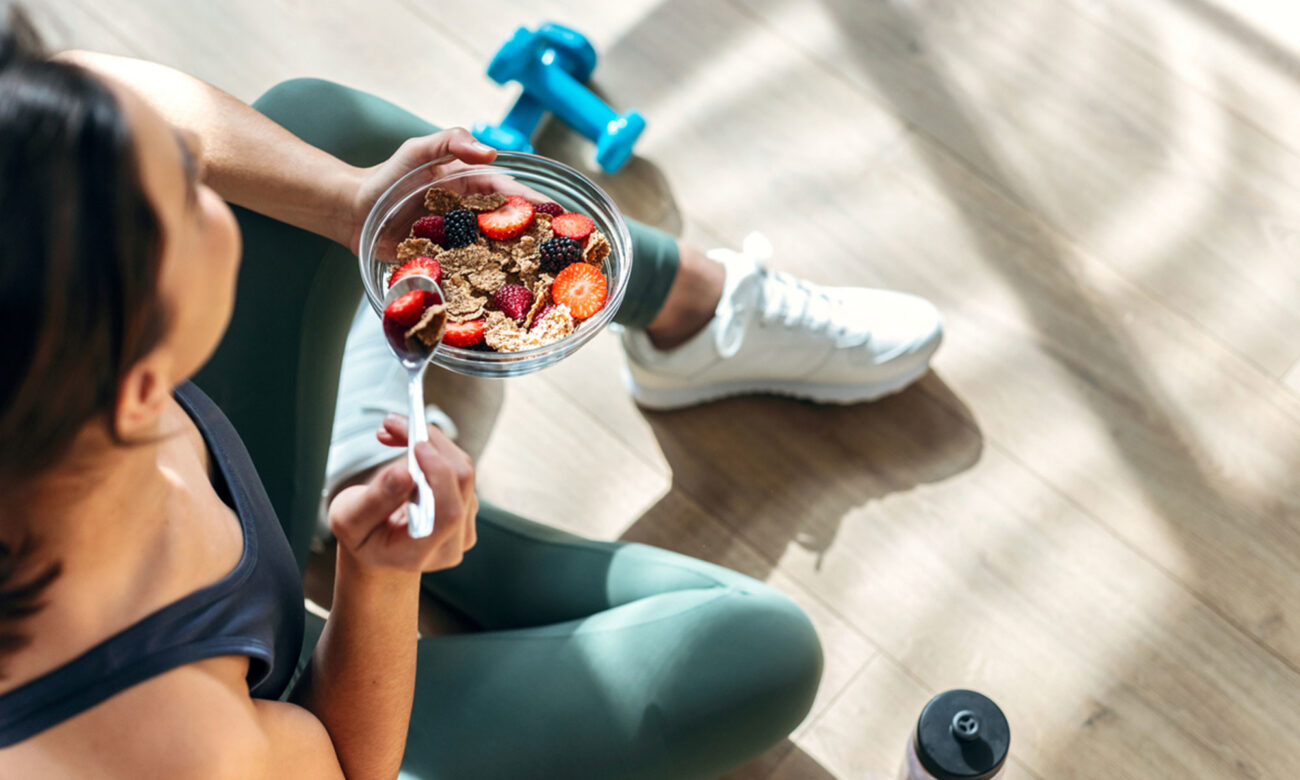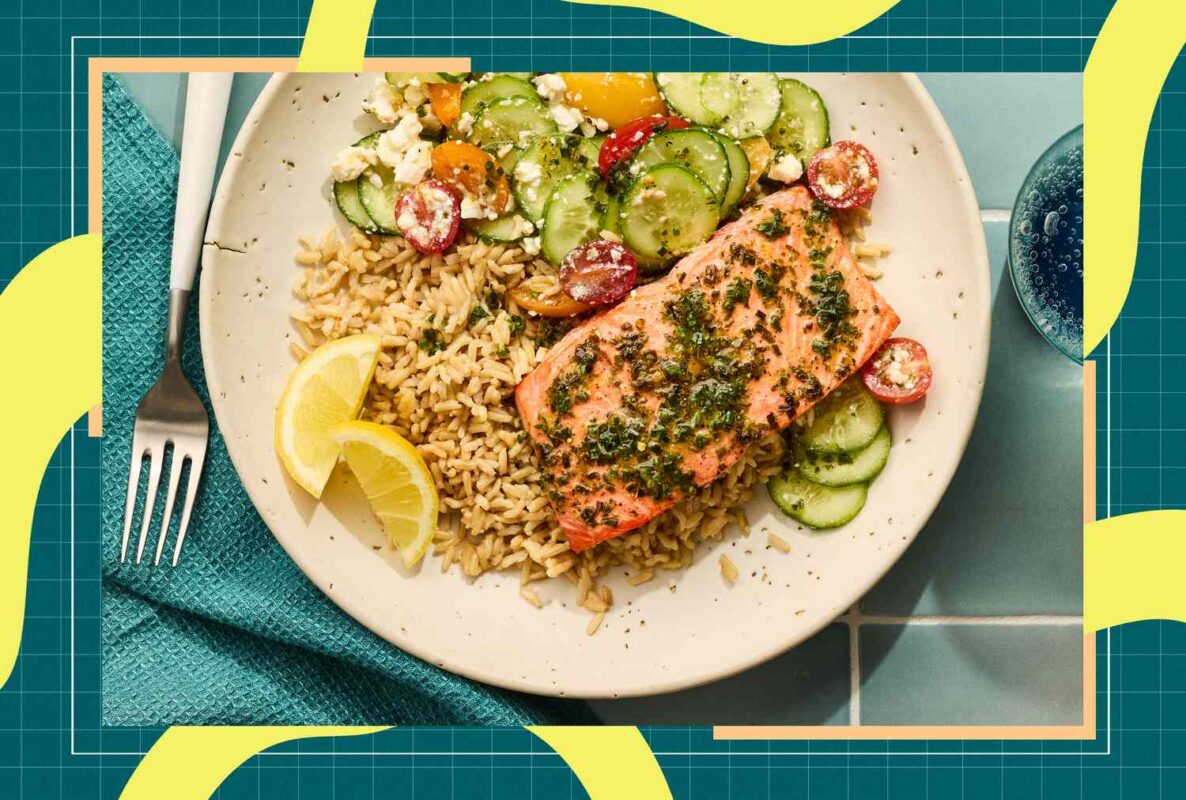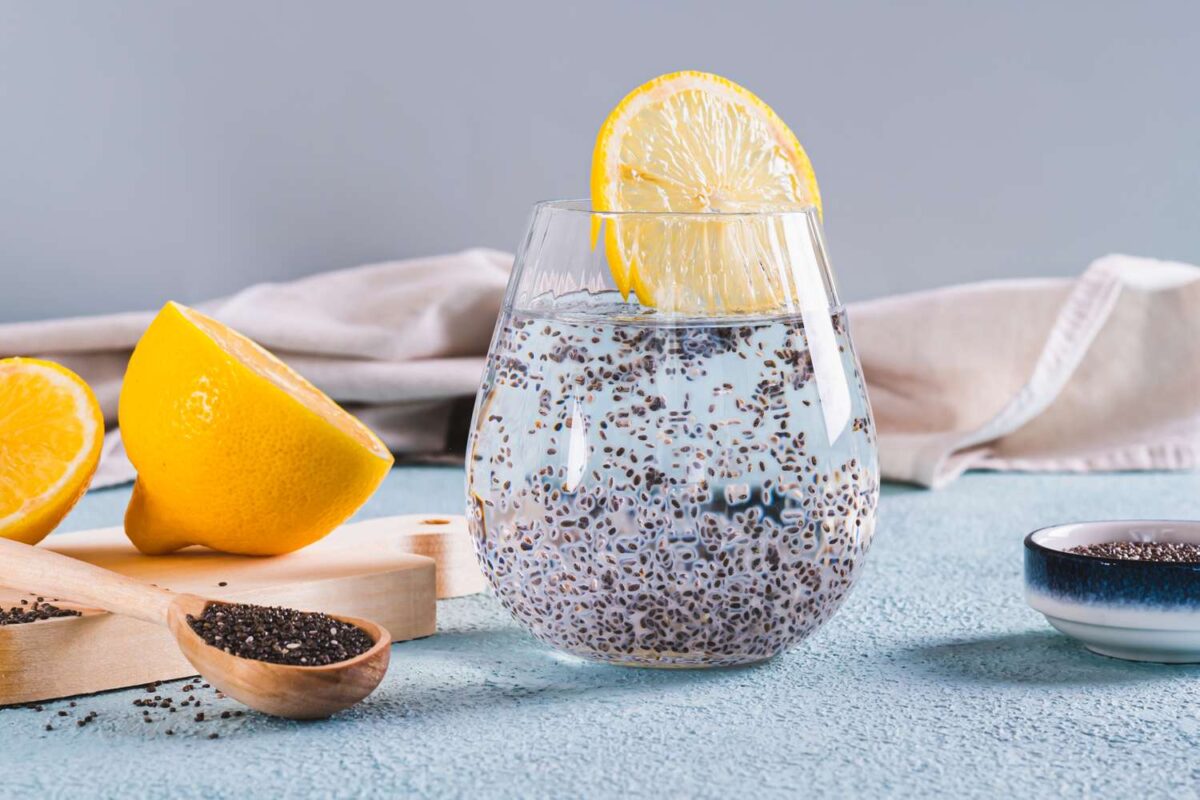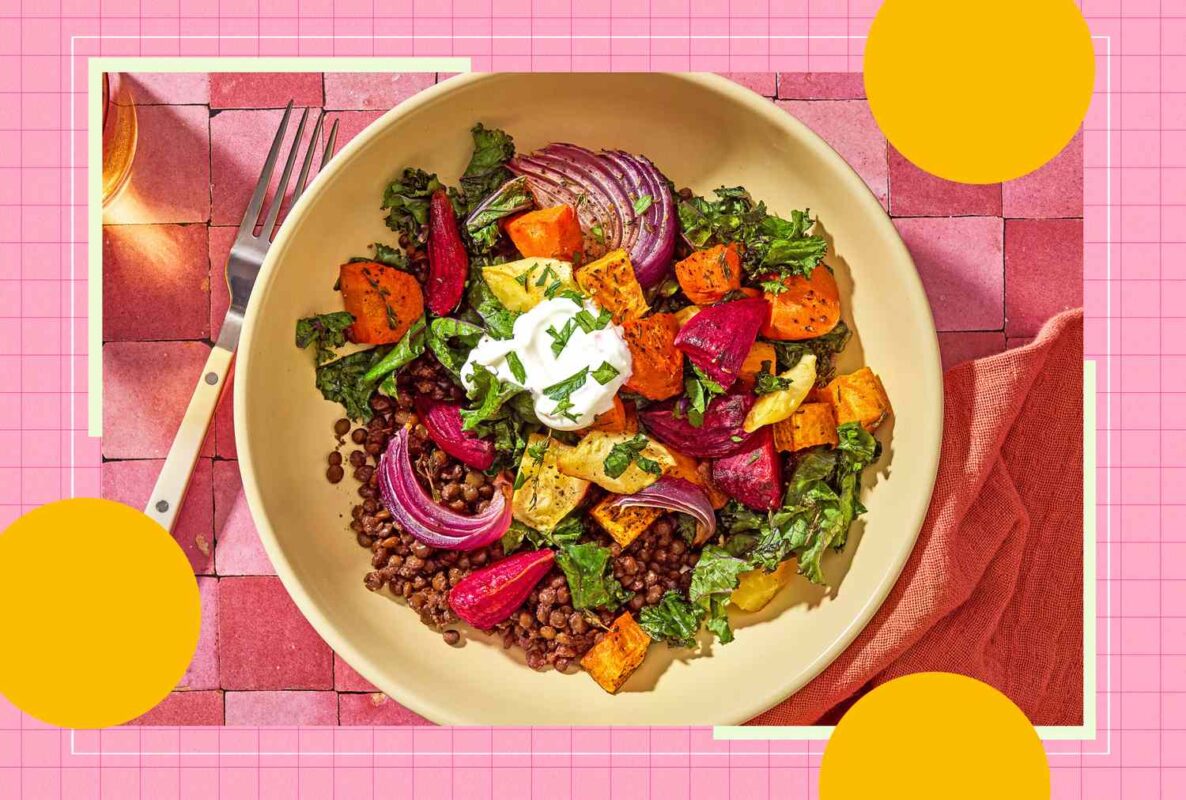Blog
7 Foods With As Many Anti-Inflammatory Benefits as Spinach
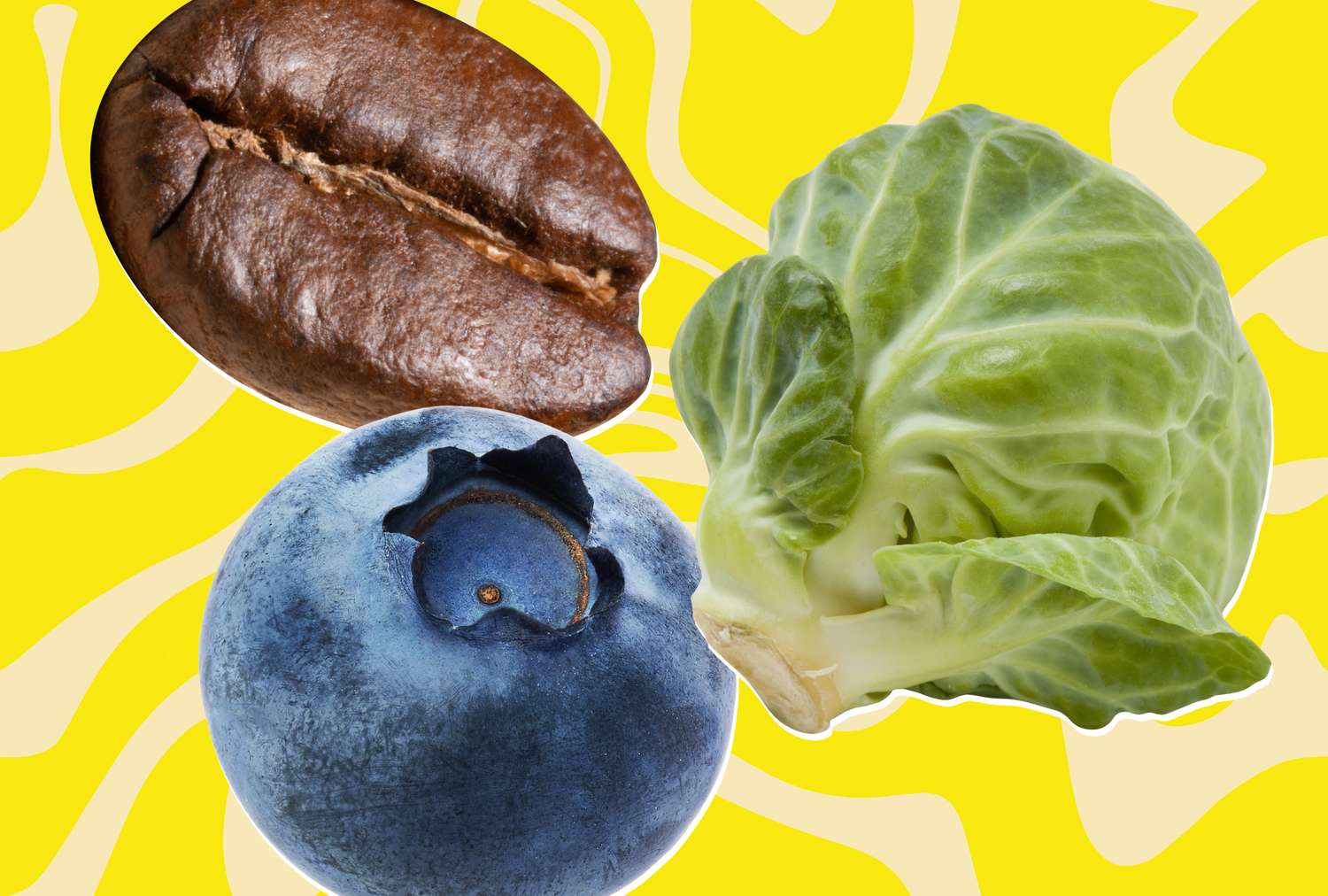
- Spinach is packed with antioxidants that help fight free radicals, reducing the risk of disease.
- There are many other foods with a similar amount—or more—of anti-inflammatory benefits.
- Fill up on these seven anti-inflammatory foods, including berries, flax seeds and pistachios.
Spinach, with its gorgeous shades of jewel-green, is rich in beta-carotene, lutein and flavonoids—all of which have antioxidant properties that help fight cell-damaging free radicals and reduce inflammation. But there’s a whole list of foods that belong alongside spinach as inflammation-fighting powerhouses with similar or even higher levels of antioxidants. Read on to learn about seven foods and drinks that offer as much (or more) anti-inflammatory benefits as spinach—and add them to your meals and snacks today.
1. Brussels Sprouts
Brussels sprouts belong to the cruciferous vegetable family alongside broccoli and cauliflower. These veggies provide a slew of nutrients with anti-inflammatory properties like carotenoids, fiber, vitamin C, flavonols and glucosinolates. Speaking of glucosinolates, these phytochemicals may help improve blood sugar management, blood pressure and blood lipid levels, as well as help preserve cognitive health and regulate mood.
2. Red Cabbage
Cabbage is another cruciferous veggie that offers glucosinolates, but it also contains a pretty big nutrient perk: Its bright red-purple hue is a sign that it contains anthocyanin, an antioxidant compound. These compounds have been linked to a reduced risk of cancer, cardiovascular disease and may protect against neurodegenerative disorders like Parkinson’s disease.
3. Berries
Whether you love blueberries, raspberries, strawberries or blackberries, they’re all packed with anti-inflammatory potential. Berries are bursting with antioxidant plant compounds like anthocyanins, flavanols and phenolic acids. These compounds in berries have been shown to reduce levels of inflammatory markers and improve lipid levels and blood vessel function for better cholesterol and blood pressure. It’s not just their antioxidants, either. Berries also have fiber, vitamins, and minerals that decrease the activity of inflammatory pathways and support healthy immune system function.
4. Coffee
If you love coffee, there’s no need to break the morning brew habit. Java is rife with compounds with antioxidant potential—caffeine, chlorogenic acid and caffeic acid, to name a few. That may be why coffee consumption is associated with lower levels of C-reactive protein (CRP), one marker of inflammation. This is significant, as coffee may be helpful in the prevention of cardiovascular disease.
When it comes to coffee, however, too much can be detrimental to your health. The FDA recommends sticking to about two to three 12-ounce cups of coffee per day, as more than that can cause negative side effects like jitters and anxiety.
5. Dark Chocolate
There’s a reason why chocolate—more specifically, dark chocolate—is a dietitian’s favorite dessert: The sweet treat is packed with health benefits, including reduced inflammation. Research shows that consuming cocoa (what makes chocolate “chocolate-y”) is associated with lower inflammatory proteins like CRP and IL-6.
Dark chocolate is a higher source of antioxidant polyphenols like catechin, procyanidins and theobromine compared to milk chocolate, which has a lower cacao percentage. Chocolate also has some caffeine, which is also an antioxidant. Even more impressive: Chocolate contains a higher amount of flavonoids (plant antioxidant compounds) per serving compared to red wine, apples and tea. Bring on dessert!
6. Pistachios
It’s common to think of fruits and vegetables as being packed with antioxidants that can quell inflammation. But nuts like pistachios provide a source of many of the same types of phytochemicals found in produce. Think: Polyphenols like catechins and lutein, a carotenoid.
The good news is that research shows that whether you like your pistachios raw or roasted, both versions are packed with anti-inflammatory antioxidants. (Although raw has higher total antioxidant activity, roasting enhances certain compounds like catechins, so there’s benefit to both.) Beyond antioxidants, pistachios are nuts that provide healthy unsaturated fatty acids, protein, and fiber, a recipe that bolsters satiety and satisfaction.
7. Flaxseed
Flaxseeds may be tiny, but they deliver a mighty hit to inflammation. A meta-analysis and review concluded that adding flaxseed to one’s diet reduced levels of the inflammatory proteins CRP and IL-6. These inflammatory markers have also been linked to the development of cardiovascular diseases and type 2 diabetes. It’s not yet totally clear why flaxseed is so anti-inflammatory, but it contains “good’ unsaturated omega-3 fatty acids called alpha linolenic acid (ALA), which may be behind its many benefits.
Our Expert Take
Spinach is a great food that’s packed with antioxidants and thus may help reduce inflammation, a common contributor to chronic disease. And while the public may have crowned spinach with superfood status, there are so many other plant-based foods that deliver a similar amount—or more—anti-inflammatory benefits. Fill up on fruits like berries, vegetables like Brussels sprouts and red cabbage, nuts and seeds like pistachios and flax, and don’t forget to ask for coffee and chocolate to bring the fun.


